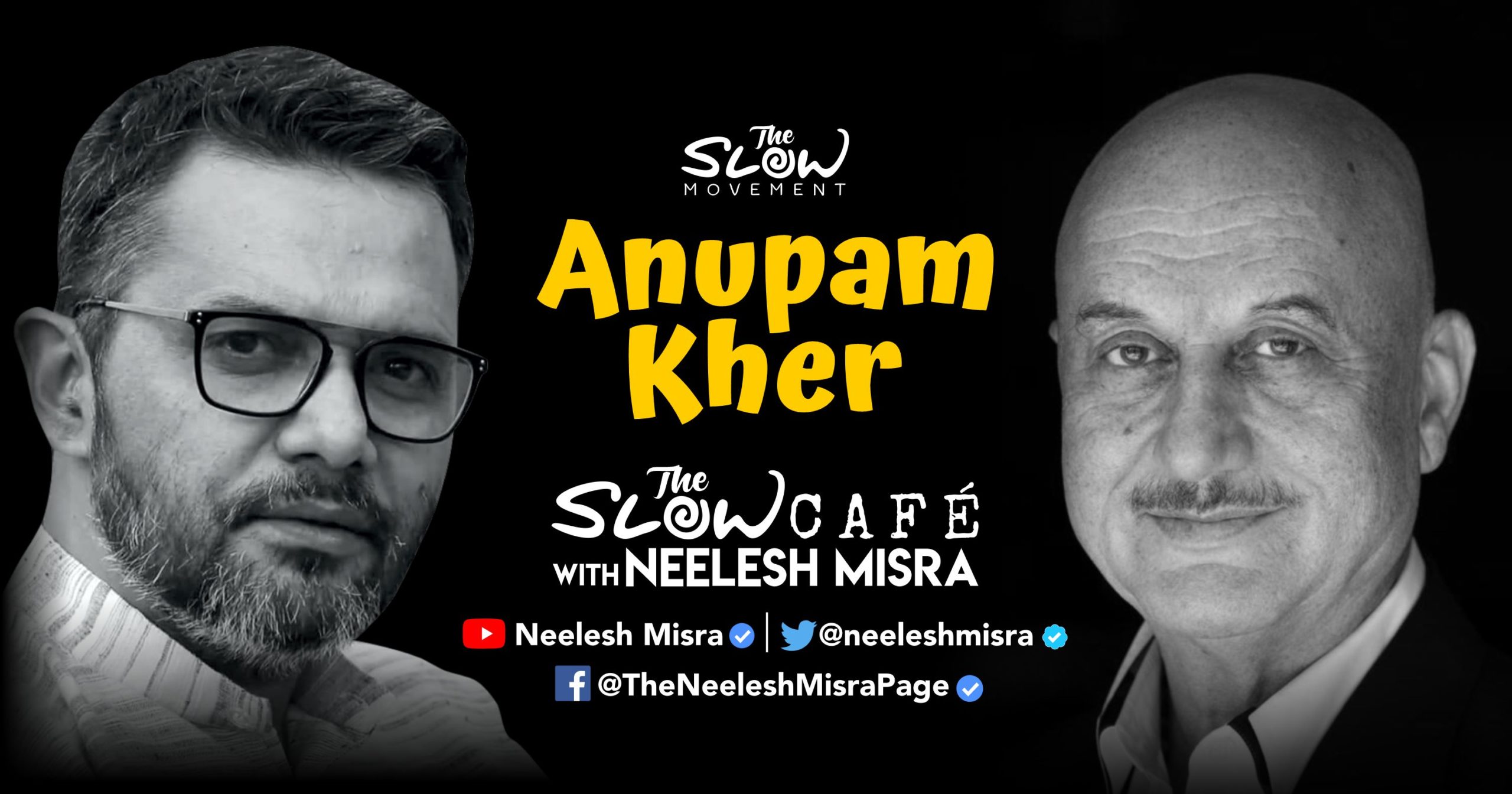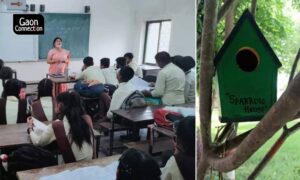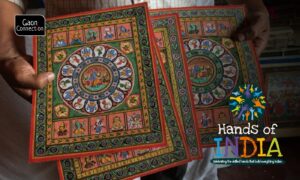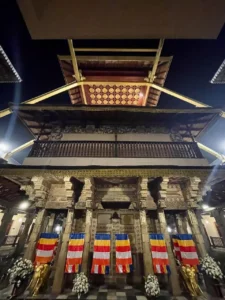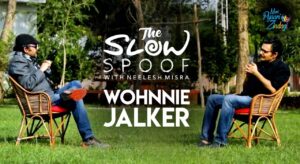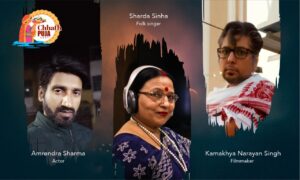At a time when going out for coffee with a friend to a cafe is a fear-tinged affair, where you’re noticing if the person in the next table is masked up or not laughing too loudly, it pays to find a seat in an imaginary cafe. Neelesh Misra does, frequently, in his The Slow Cafe. What you get is great conversation, sitting at home, sipping on tea or coffee you made, without any fear making an appearance.
This time around, it was time for a conversation with Anupam Kher, whose latest book Your Best Day Is Today has just been released. There’s an interesting story behind the title too. The book is dedicated to the heroine of that story — Kher’s mother Dulari, now a popular presence on Kher’s social media pages.
Growing up, when money was in short supply and when Kher and his brother Raju were being dropped off to school, Dulari would make up for all the difficulty in their lives by telling them in Kashmiri that ‘Your Best Day Is Today’.
That, Kher said, helped them navigate life through its ups and downs — bad marks, not topping in running — because if their mother told them this day was good, it would be good.
Kher wrote the book in a year that has been very difficult on everyone. In fact, when he came back from New York and walked into his Mumbai home in the initial months of COVID-19, he realised life had changed. His friend, actor Anil Kapoor, who lives nearby, would always greet him with a hug. He sent him a message saying, ‘Don’t even think I’m going to come out to meet you. Let’s see after 14 days!’ At home, son Sikander opened the door and said hello with his elbow. “Kiron was in Chandigarh, my brother, his wife and my mother were in Lokhandwala [in Mumbai] and I was at home. The domestic help were all wearing masks and I was not sure if they were happy I was back or not. Suddenly, I felt an unknown fear. And, I am usually a positive person,” Kher told Misra.
The trauma of sorts began even before, but Kher narrated it with his trademark levity. “I became an actor so people could recognise me. Not a single person came to take a photo in New York. In the flight, the staff were in PPE suits. And then, in Mumbai, they were very efficient in stamping me, I came out of the airport, and it hit me that life has changed. I felt like I was in a Will Smith movie,” Kher said.
The pandemic forced many to think, and Kher was not an exception. He said he realised that we all lived in the future. “We have all been planning for a better holiday, a better home, we have never lived in the present. And now we were being forced to. In a sense, this has allowed us to pause and step back and observe our life,” he said.
Usually, Kher thinks of the title and then writes. This time around, he kept writing and speaking into his dictaphone. Keeping him company in all of this were birds he had never noticed before in Mumbai. “I heard and saw sparrows, the koels sang and I sang back to them,” said Kher, recreating the sweet notes over a WiFi connection. “The sky was blue, and I knew things would set themselves right, that there would be a silver lining. For a long time, we forgot we shared the universe with other species. This has taught us to respect all creatures and flora,” Kher said.
Finally, Kher realised that what matters is three things — “we need our families, we need essential commodities, and we need WiFi to stay connected”. He figured we don’t need branded bags or designer labels. “For months now, I’ve been living in my track pants,” he laughed.
When creating the book, Kher fell back on an old technique of writing down when he struggled to remember dialogues — it wrote itself that way, he told Misra. “It is a first-hand account of what I was feeling. I saw the death of people I knew — Rishi Kapoor, Irrfan — suddenly, everyone became a statistic. And, after 60 years of age, you start unknowingly counting your time left on earth,” Kher said. He went on a social media detox that left him feeling liberated.
Motivation was another key factor. People discovered strength within themselves they did not know existed. “In fact, I asked [badminton champ] Saina Nehwal how she found it in herself to play when there were no spectators. She said, she looked within. We all did that, right? We noticed our breath.”
When Misra asked him about two chapters — on staying connected and decluttering, Kher said that he discussed the need to declutter emotionally and staying connected to the things that mattered. “You speak, I listen, and this comes from the desire to stay connected. I did not want to walk about with the burden of being Anupam Kher on my shoulder. I removed so much physical clutter too — shirts, jackets, shoes.”
And then, he cracked Misra up. “I don’t even wear dark glasses, I am claustrophobic. Also, the whole point of wanting to be an actor was to be recognised. Why hide my face?”
Kher spoke about how popularity and success allowed people the ability to sometimes forgive those who treated them badly on the way up. He spoke about connecting with old friends from school, 50 years after they last met. This lockdown, Kher said, was about him finding his roots and learning to be himself. “I came to this city with little money. Today, I am sitting comfortably in my house and talking to you,” Kher said.
In a conversation that veered towards deep philosophy, the actor, who has been part of many international productions including medical drama New Amsterdam, was honest enough to speak about how “sometimes, anger keeps us alive, sometimes, hurt. The pandemic introduced us to ourselves”.
The show was filled with thought nuggets that would work well as life lessons. Sample these — “Today, you Google an answer, but that’s information. Knowledge comes from living life.” “Now, those who want to reach you will somehow reach you, but if they don’t want to, they won’t even if they are sitting next to you.”
Misra said the “positive impact” of the work he does matters to him. “When someone listens to my stories on the radio, does it help them take stock of life? Become a better person?”
Kher regretted that with time and age and gadgets, we have lost the innate sense of wonder we were born with. “I feel richness is not one’s bank balance but the people one is connected with,” Kher said, adding that he believes time is made up of breaths. “If we run through life, we use up our quota fast. See the tortoise, it lives for hundreds of years,” he said.
Kher said he liked conversations that were cathartic, like this one, because he was by nature an “impatient man. This is why I constantly kept doing movies”. He was also guided by something his father taught him — failure is always an event, never a person. So when Kher went to his father with his marks card, having come 59th in a class of 60, his father told him that he had many choices — he could come 48th next time, without fear. “Failure is a great teacher, success is one-dimensional,” said Kher.
The actor then went back to the story of calling up his school friends, and how he met his best friend Vijay Sehgal, now a retired banker, there. After a school topper told him in jest he could not sit with him, Kher moved to the last bench, where Sehgal was sitting. “He wondered why I wanted to sit with him on the same bench. I told him, ‘Allow me to sit here. You’ll remember all your life that I am your friend’.”

